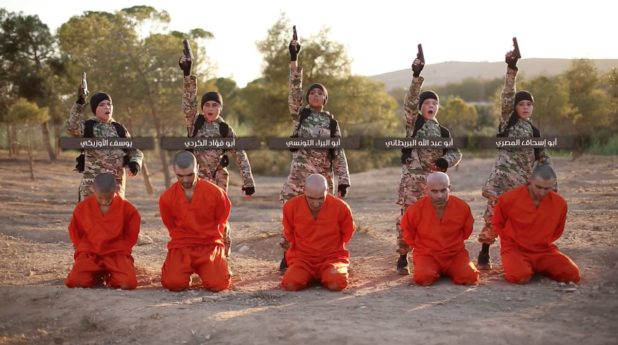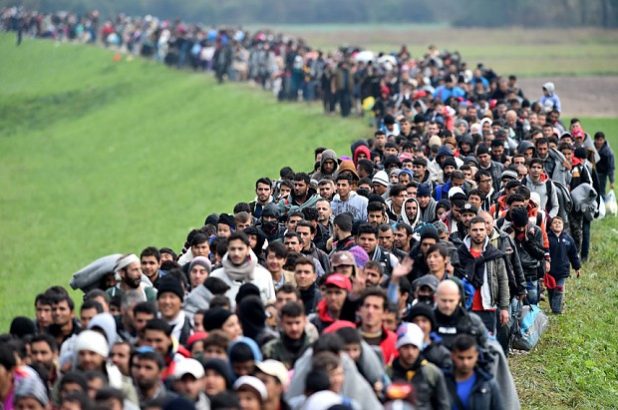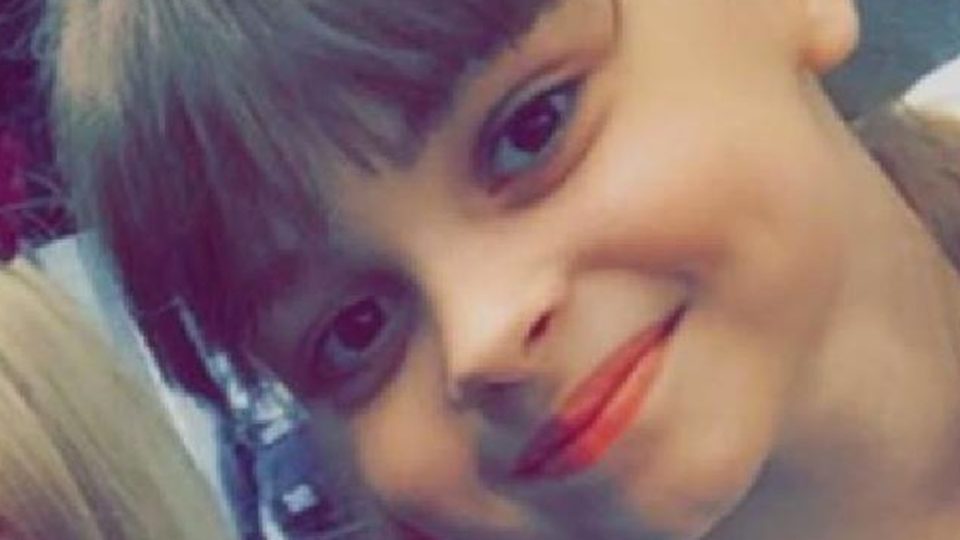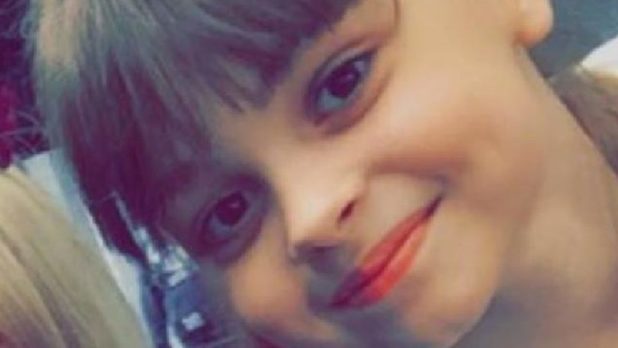Spartacus
Daily Stormer
May 25, 2017

Having your children execute your enemies is kinda bad, but they’re much more likely to learn practical skills that come in handy later in life.
The Telegraph posted an article today about how to talk to your kids about terrorism. This didn’t used to be necessary before diversity… but I’m just a bad person for pointing that out.
As parents, there is a constant temptation to shield our children from bad news. But sometimes, and in particular with acts of terrorism, bad news is unavoidable – it’s in on television, it’s on social media, and it’s on our minds.
Experts from the Royal College of Psychiatrists have advised that parents should be honest with their children about the Manchester terror attack. “We would not advise hiding your child from what may be on the news or social media,” said Dr Bernadka Dubicka, chairwoman-elect of RCP’s child and adolescent psychiatry faculty. “They will inevitably learn about it from their friends, so it’s best to be honest with them about what has happened.
Being honest, huh?
Gemma Allen, a senior bereavement counsellor at Winston’s Wish, Britain’s leading charity for bereaved children, offers the following tips for talking to children about terrorist attacks.
Okay, let’s see what the expert has to say.
Language matters
For children of all ages, the most important thing is to reassure them that they are safe. Don’t get into the political context with primary-aged children. That may come up in conversation with older children, but the importance at any age is offering the reassurance that they are safe.
For pre-school children, use concrete language: don’t say “This person went to sleep” or “We’ve lost that person” – because that could instil fear or anxiety in that child about going to sleep. And what does lost mean? They’re lost at the shops? Be accurate and mindful of the impact of your language.
I thought you were supposed to be honest. How can you offer any assurance or reassurance that it’s not gonna happen to them too? How does that work? Or is it supposed to be short-term, like “Okay kiddo, within the next 10 minutes nobody’s gonna kill you, got it?”
Age-appropriate conversations
For pre-school, think about how much exposure they’ve had. Maybe they’ve overheard the news, so the conversation could be quite brief: acknowledge what has happened, and say that lots of people have died as a result of a really bad incident. You can say that we don’t know why this has happened.
As the parent or teacher or carer, the most important part is to offer reassurance: this is very unusual, there are lots of safety checks in place to protect us.
Use age-appropriate language, and be aware of what your child understands: do they really know what “died” means? It’s usually not until the age of 5 or 6 that children understand that death is permanent.
With primary school, the majority will understand what “dead” means. So it may be that you can add details – you may be able to sit down and watch the 6 o’clock news together.
Except… We do know why it’s happened. The governments of White countries have been taken over by humanoid rats from the desert called “Jews,” and they’re flooding us all with violent, clinically retarded monkey-people who want to kill us for various reasons.
As for all the “safety checks”, well…

Don’t worry, we’re checking each and every one of them
The perpetrators
You should talk about a bad action or behaviour – not bad people. Ms Allen explains: “A lot of our work is with families bereaved through murder.
With children, you must be careful about the language: people aren’t bad – it’s something bad that they’ve done – this helps prevent anxiety in children, and fears that ‘bad people’ are coming to get them.”
What?
So there’s no such thing as bad people? Really? That sandnigger who blew that concert was a good person who did something bad? How the fuck does that even work?
Who decided to make these people “experts”?
Social media awareness
Secondary school aged children will have come across news about the attacks already on social media. Remind them that some of the things they have read there may be incorrect. Have a conversation with your child about what they think has happened.
Talk about the images they’ve seen – these can be more powerful than words.
If they see an image, and haven’t had a conversation with someone they trust, they will build up these images something that is so big that it’s unmanageable for them; you don’t want a child to start fantasising that someone is going to come after them.
And why is that a bad idea? The way things are going, someone is eventually gonna come after them.
https://www.youtube.com/watch?v=U1GeLKAXG6Q
https://www.youtube.com/watch?v=L5KoExQv3PQ
https://www.youtube.com/watch?v=XyJ46y2VkmA
Just because most of them are too dumb to build bombs doesn’t mean they won’t attack you in other ways
Promote peace
When I have spoken to my children, who are primary and pre-school age, about previous terror attacks, I’ve tried to shift their focus towards the coming together people in the aftermath, and the work people around the world to keep everyone safe.
“Look at how many retweets this hashtag got! I told you love wins!”
Shield them
From certain politicians’ dangerous reactions – for example, Jeb Bush saying terrorists in Paris were carrying out “an organised attempt to destroy Western civilisation,” these men were granted more power than they have.
This hysteria is exactly what the people carrying out these acts want. And it is exactly this sort of hysteria that we, as parents, need to protect our children from.

Instead, this is the sentiment we need to spread: that the majority of the world wants peace.
As Fred ‘Mr’ Rogers, the American children’s television host and one of my childhood heroes, was fond of saying; “Whenever there is a catastrophe, always look for the helpers – because if you look for the helpers, then you’ll know there’s hope.”
But what if you’re dead?
What hope do you have then?
Is senile optimism really what kids need? Wouldn’t it be better if you just told them the truth? They’d be much more likely to, you know, not get killed, if they understand how the world works.


